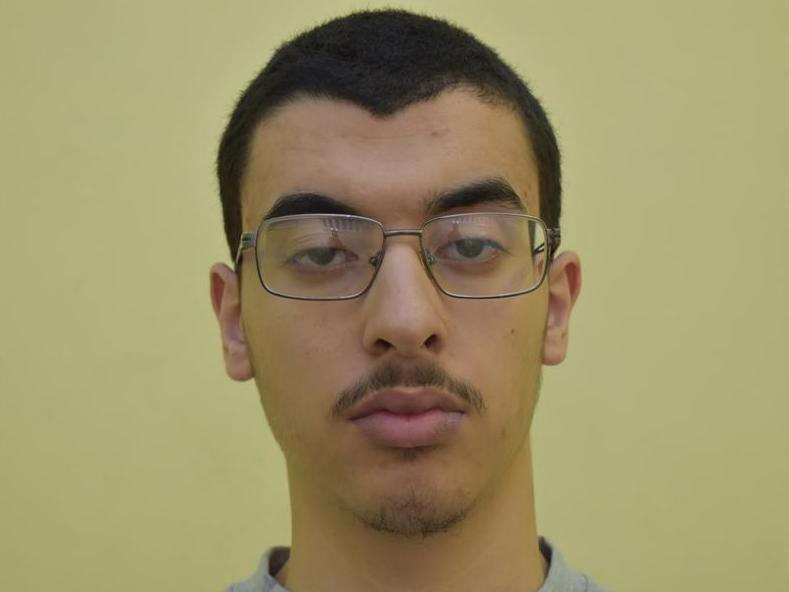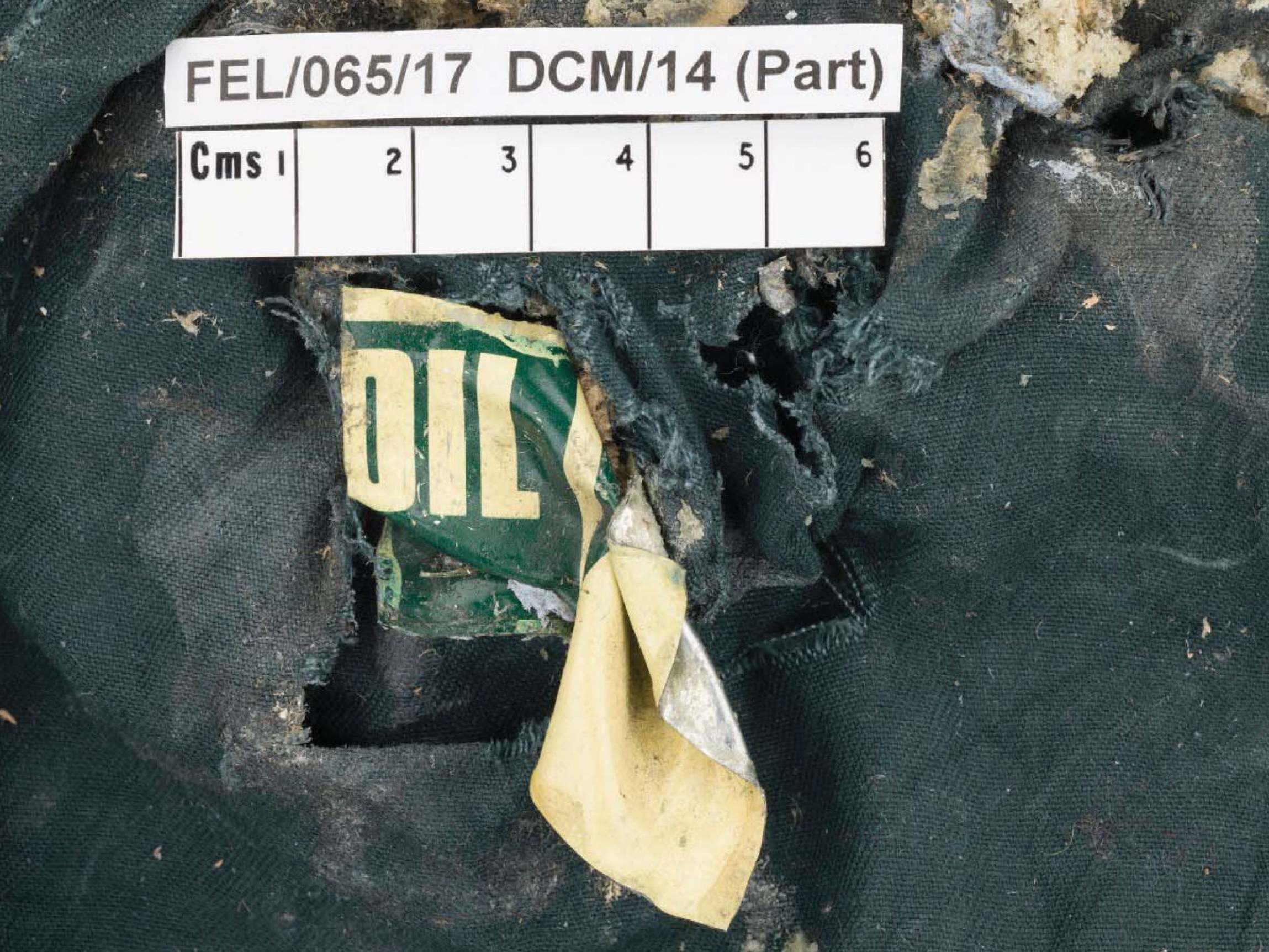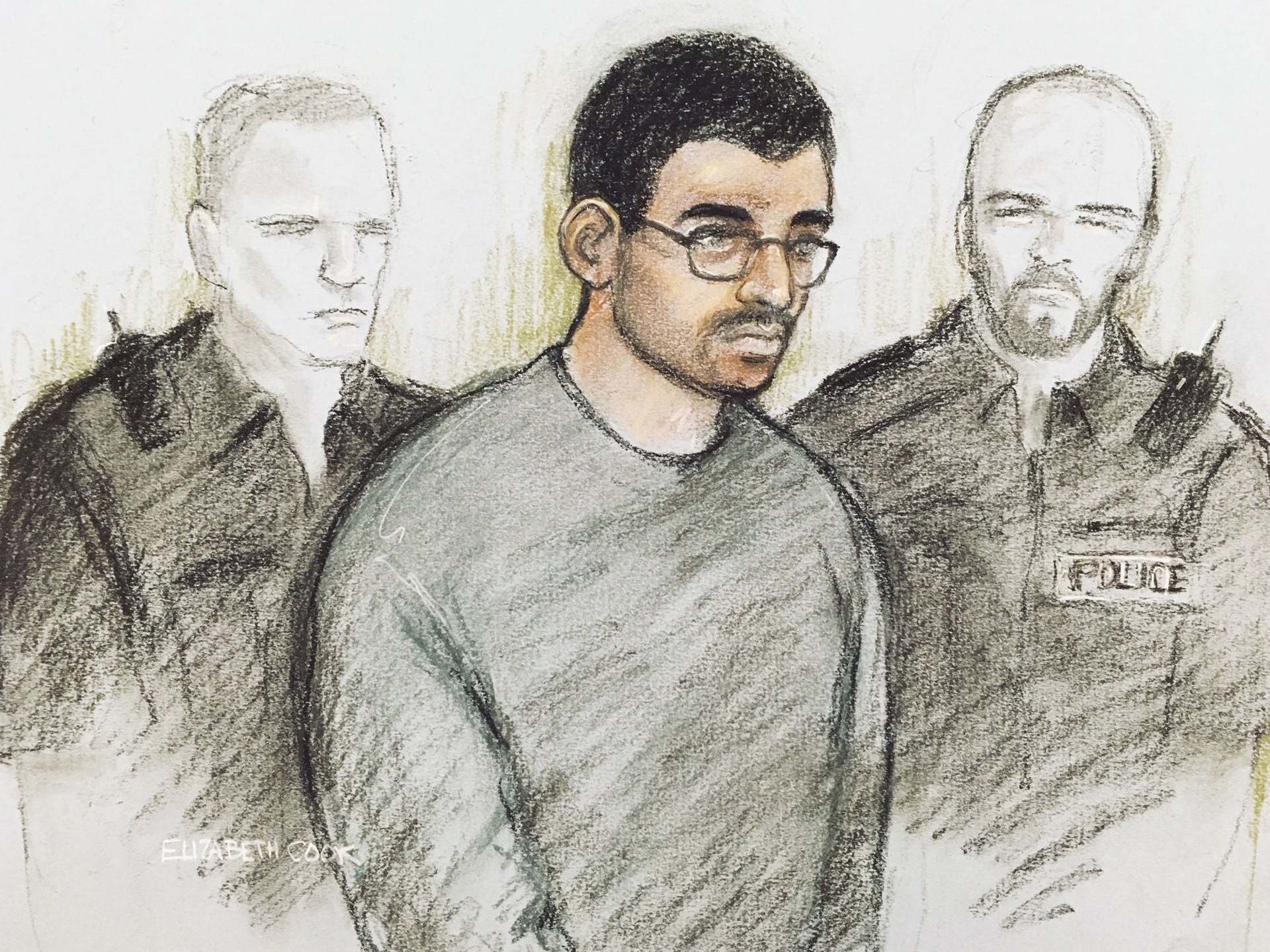Hashem Abedi: Coward whose delays and denials worsened trauma for Manchester attack victims’ families
Abedi was repeatedly absent from court, at one point claiming he was allergic to tap water
Families of the 22 victims murdered in the Manchester bombing waited almost three years for a chance to see justice, only to find it delayed time and again by the cowardly evasions of Hashem Abedi.
He had helped build the bomb that his brother, Salman, detonated at Manchester Arena in May 2017.
Prosecutors presented forensic evidence to the Old Bailey that showed the blast was a joint enterprise between the two brothers, although only one would press the button.
After months of preparations together, Abedi stayed in Libya when the attack took place and fought being put on trial in Britain at every step.
He claimed he had been tortured in Libyan custody, that his extradition was unlawful, and then refused to answer questions from police.
Despite an overwhelming quantity of forensic evidence proving Abedi’s involvement in obtaining explosives, bomb components and properties to build it, he denied all charges.
Legal argument delayed the start of his trial in February and then on the second day, the 22-year-old claimed he felt unwell.
The jury was sent out of the courtroom before his defence barrister told the judge that Abedi was dehydrated because he was “allergic to chlorinated water” and had to have mineral water at HMP Belmarsh or in the dock.
Justice Jeremy Baker adjourned the trial so the defendant could attend, telling the court: “It ’s important that Mr Abedi is able to concentrate on the [prosecution] opening and for that reason I’ve arranged for some inquiry to be made about his condition to ensure that if he needs any medical intervention he receives it promptly.”
But it was just the first of numerous absences by Abedi throughout the seven-week trial, which was watched by relatives of the victims in the Old Bailey and streamed live to Manchester and other cities.
The evidence was repeatedly paused when the defendant claimed he felt ill, suffered flashbacks and was too exhausted to attend.
On one day, jurors were sent home again barely a minute after taking their seats after being told simply that Abedi was “feeling unwell”.
“He says this morning he made an effort, left his cell, came down to the search area and just cannot carry on. He did try, he’s feeling exhausted,” defence barrister Stephen Kamlish QC told the judge on 3 March.
“He’s been having flashbacks, hardly any sleep and he’s just reached the point where he’s just overwhelmed by it all.”

Mr Kamlish complained over Abedi’s treatment in custody and in Libya, but a psychiatrist who visited him in custody said he was not unfit to stand trial.
Mr Kamlish said Boris Johnson, then the foreign secretary, visited Libya in August 2017 while Abedi was being detained and announced a £9m aid package shortly afterwards.
It was followed by a historic request to extradite Abedi to the UK – something agreed by Tripoli despite its previous refusal to hand over Libyan nationals to foreign jurisdictions.
Abedi, who was born in Britain to Libyan parents, said he was tortured in Tripoli but defence requests for details of any discussions between Mr Johnson and Libyan officials about the case were “ignored” by the Crown, Mr Kamlish said.
Addressing the court during legal argument in January, he said: “They [the Crown Prosecution Service] cannot show the extradition was lawful.”
Mr Kamlish alleged that the questions posed by “Libyan torturers” about Abedi’s conduct in Manchester could have only have come from investigators in the UK.
British officials were also aware of Abedi’s complaints of “extreme torture” – including concerns raised by his brother Ismail – long before an application to extradite him to the UK was made, the court was told.
Mr Kamlish said Abedi was questioned about his treatment by MI5 and MI6 representatives, who allegedly gave him chocolate, with his alleged aggressors present in the room.
He added: “After the torture was clear, the British government do nothing to stop it, then applied for his extradition.”

The Home Office denied that any rules were broken and Duncan Penny QC, for the prosecution, ruled out “underhand tactics” from London.
“There is no evidence here that the defendant was deprived of due process in Libyan proceedings,” he added.
The judge said there was “no reason to believe the prosecution hasn’t carried out its duty” and the trial went ahead.
A Home Office spokesperson said: “Hashem Abedi was extradited in line with strict legal requirements, and the defence counsel themselves abandoned their arguments regarding this process.”
Abedi’s barristers had to persuade him to return to court but as the prosecution closed its case, he decided to drop out completely – refusing to attend court, declining to give evidence in his defence and sacking his lawyers.
In the absence of the jury, barristers Stephen Kamlish QC and Richard Thomas were thanked by the judge before they picked up their case files and walked out with a look of resignation.
Abedi was not in court as the jury unanimously found him guilty of murder, attempted murder of those injured and conspiring with his brother to cause explosions on Tuesday. He will be given a life sentence at later date.
Assistant Chief Constable Russ Jackson, of Greater Manchester Police, said Abedi was “every bit as guilty as his dead brother”.

“During his police interview, he professed not only his innocence but his desire to help police with their enquiries before then refusing to answer all further questions put to him,” he added. “Then at his trial, he offered no testimony in his own defence.
“In the last few weeks Abedi absented himself from court, such was the contempt he showed for the proceedings and all those so deeply affected by this cowardly act.”
Abedi’s refusal to give evidence left many unanswered ahead of the delayed public inquiry into the attack, which will examine claims the security services missed opportunities to prevent the bombing.
A lawyer who represented the families of 11 victims said the trial process had been “incredibly painful”.
Victoria Higgins, of Slater and Gordon, added: “The frequent delays and disruption Abedi has orchestrated during an already lengthy trial has only added to their distress.
“But they can now turn their attention to the inquiry and I think that, for many, is the part that will answer their questions.
“They know what happened but the inquiry will examine the how and why and whether there is anything that could have prevented or minimised the devastation caused by this attack.”
Additional reporting by PA
Bookmark popover
Removed from bookmarks